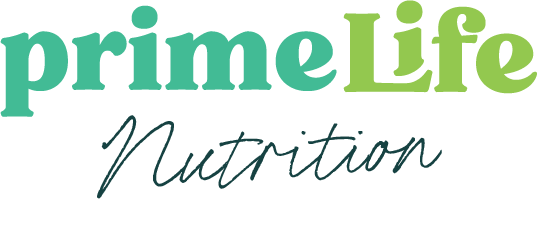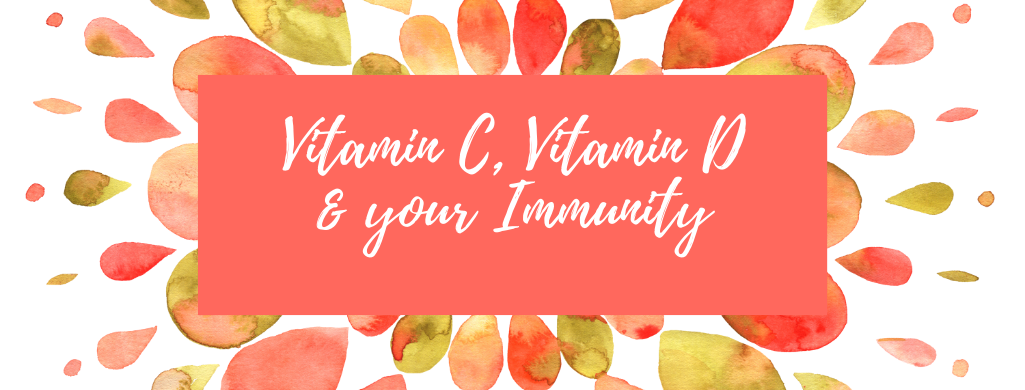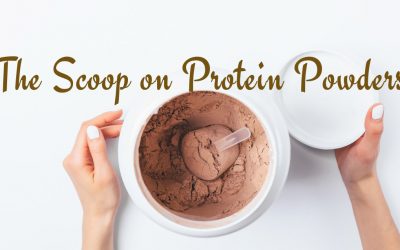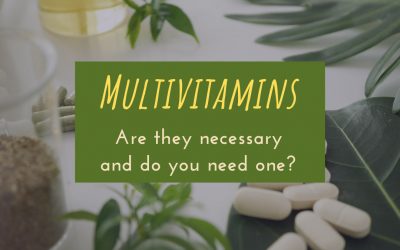Your New Best Friends for Immune Health–Vitamin C and Vitamin D
In these times of COVID-19, we are becoming more aware and knowledgeable about how illnesses spread. We know that it is important to wash our hands, refrain from sharing drinks, and be cautious of our distance between our friends and family–But how do you set your body up for success when you DO come into contact with germs? Vitamin C and Vitamin D have your back.
Vitamin C Immunity Benefits
Vitamin C is an antioxidant and plays a major role in the growth and repair of our bodies. It prepares your body to fight and then speeds up your recovery if you do end up getting sick. In other words, paying more attention to getting Vitamin C into your diet can decrease the length of time you are sick for, allowing you to recover faster and get back on track.
How can I get Vitamin C?
Vitamin C must be consumed through food because it cannot be produced by your body. Great sources of Vitamin C include fruits and vegetables such as citrus fruits, tomatoes, potatoes, strawberries, green and red bell peppers, broccoli, brussels sprouts, and kiwi. Many of these foods can be enjoyed cooked as well as raw. If you do decide to cook your fruit/veggie, be cautious around how long the food is being cooked for and how high the heat is. Too much heat for long periods of time can decrease nutrients in the food. Microwaving or steaming are good options to minimize nutrient loss while still achieving the desired texture of a cooked food.
Vitamin D Immunity Benefits
A lack of Vitamin D has been proven to correlate with an increased risk for infection. In fact, Vitamin D used to be used to fight tuberculosis before antibiotics were created! This is because Vitamin D is expressed on your immune cells. Vitamin D decreases inflammatory processes, increases antiinflammatory processes, and helps the body better absorb minerals such as calcium and phosphorus.
How can I get Vitamin D?
Your main source of Vitamin D is the sunshine! Try getting out of the house when taking a break from work for just 15-20 minutes to soak up the sun on your bare skin. Spending well over this amount of time without sunscreen or protective clothing on is Vitamin D overkill and can increase risk for burns. It may sound simple to get your daily Vitamin D dose, but over half of the world is deficient because most daily routines in this day and age require us to be inside. Vitamin D can also be absorbed through food, but these food sources are not common or accessible to many. Vitamin D rich foods are cod liver oil, salmon, swordfish, tuna fish, orange juice fortified with Vitamin D, milks fortified with Vitamin D, sardines, and beef liver.
Should I supplement Vitamin C and/or D to make sure I am getting enough?
It is recommended to focus on getting nutrients from food sources (food and sun in the case of Vitamin D) before supplementing. Look back at the food sources for Vitamin C and Vitamin D and choose a few that you would enjoy eating. If you enjoy it, you’re more likely to be consistent. Supplementation should fill in the gaps. However, research has shown that half of the world is not able to get enough Vitamin D from food and sunshine. Therefore, many could benefit greatly from taking a supplement. It is important to talk to your dietitian or doctor to make sure you are getting the correct amounts for you.
- Written by Tara Greenwood, Penn State University Nutrition & Dietetics Student






0 Comments